Game-changing ESG initiatives expected
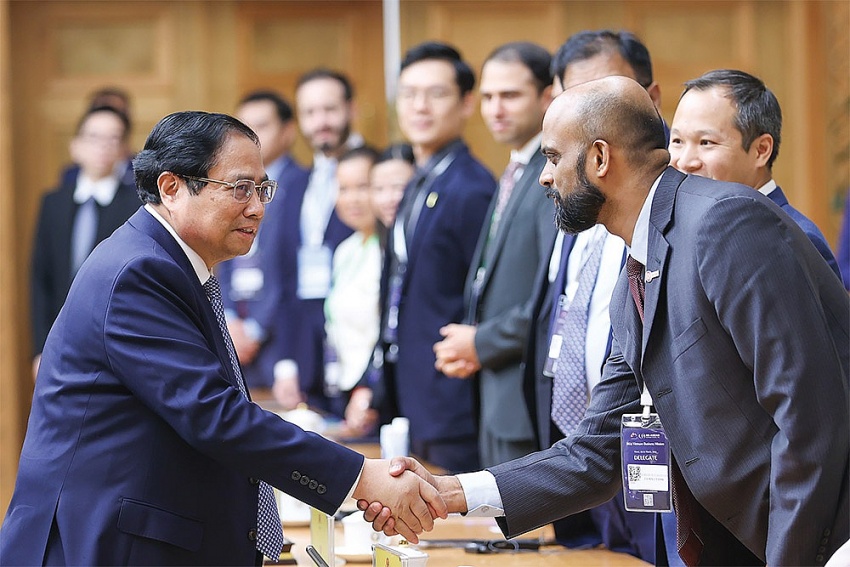 |
Hitoshi Honna, director and president of Erex Co., Ltd., was present at the Vietnam Business Forum (VBF) for the first time last week, with high expectations about his renewable energy projects here.
“I am impressed with the government’s net-zero commitments. We want to join and contribute to the country’s efforts to implement these ambitions,” he said.
Together with economic growth, local demands for electricity are growing. Meanwhile, for a decade the volume of fossil energy sources like coal and gas to serve power plants has been declining, Honna added. “To meet growing power generation demands, Vietnam has to import from abroad, thus leading to foreign currency waste and increases in the electricity price.”
Having a presence in Vietnam since 2021, Erex is proposing 18 green energy projects in cities and provinces nationwide in line with Power Development Plan VIII. In alignment with the previous iteration, the company is building a biomass power plant expected to be commercially operational by the end of 2024.
According to a March survey conducted by Decision Lab, foreign-invested enterprises (FIEs) in Vietnam are now trending towards green growth and sustainable development amid challenges in traditional sectors, especially in manufacturing and processing.
A business outlook score of 37.2 for the manufacturing sector suggests a less optimistic outlook for the manufacturing sector in comparison to other sectors. The industry is grappling with numerous difficulties, particularly in the face of a global decline in aggregate demand.
Environmental, social, and governance (ESG) criteria have now becomes a motivation among FIEs. Foreign businesses prioritise governance and environment in aligning their operations with ESG criteria. And in the trend, giants like Heineken, Coca-Cola, Bosch, and Intel are pioneers.
Coca-Cola plans to focus on several critical sustainability programmes in 2024: supporting nature-based solutions in the Mekong Delta, supporting a capacity-building programme to develop a financing roadmap for the circular economy in Vietnam, and looking at funding opportunities and analysis on re-use solutions and their enabling environment in Vietnam.
Claudia Chan, senior director for Public Policy at Coca-Cola ASEAN and South Pacific said, “Water is a priority for Coca-Cola because it is essential to life, our beverages, and the communities we serve. Our 2030 Water Security Strategy focuses on creating a water-secure future and accelerating efforts on collective action. This year, we have set up 39 systems for students and school communities to access clean water.”
“In the area of packaging, we are working to use more recycled content in our packaging, expand our use of refillable bottles, and collect packaging for recycling through our World Without Waste initiatives. We also partner to design new packaging solutions. We continue to apply innovative production models and technology in our 19-ha new greenfield bottling plant in Long An Industrial Zone, which will be fully operational in 2026,” Chan said.
Game-changing initiatives
Alexander Koch, managing director of HEINEKEN Vietnam, has a sustainability vision and ambitions in place. The company tracks its progress against its ambitions every year, and over the past 10 years since it started.
“To further reduce our environmental impact, we are also exploring bolder and more comprehensive renewable electricity solutions, such as direct power purchase agreements and solar energy systems,” he said. “We have the ambition of reaching net-zero in production by 2030, and across our value chain by 2040 – and we are in full support of the Vietnamese government’s agenda for net-zero by 2050.”
As demonstrated in the Decision Lab survey, approximately eight out of 10 businesses report to already have an ESG strategy developed, either by their global headquarters or locally. A promising indicator is that 34 per cent of businesses have already actively initiated local ESG strategies, with many others either in the monitoring or planning phase.
Moreover, 60 per cent of businesses have a board-level governance structure for sustainability and almost 60 per cent have defined ESG targets. And 60 per cent of businesses also indicated that they have budget allocated for such initiatives.
Specifically, 35 per cent of businesses responded that they have targets related to energy sourcing. About 25 per cent of businesses have targets to manage water and waste in Vietnam.
At the Vietnam Business Forum last week, Denzel Eades, vice chairman of British Chamber of Commerce Vietnam, said, “We applaud Vietnam’s dedication to net-zero emissions and sustainable development, as well as the government’s endeavours to champion this agenda. The UK private sector stands ready to contribute significantly across key sectors such as energy, finance, pharmaceuticals, and consumer goods.”
Similarly, Gabor Fluit, chairman of the European Chamber of Commerce in Vietnam said, “A central priority of our Green Growth Sector Committee is promoting green growth strategies, such as improving waste management, raising public awareness, and pioneering anti-plastic pollution solutions.”
Meanwhile, the Japanese Chamber of Commerce and Industry (JCCI) in Vietnam has established the AZEC/GX Promotion Working Group to cooperate with the Japanese government. With the participation of the Japanese embassy, Japan Bank for International Cooperation, and about 40 JCCI member companies from the Japanese side, they will promote specific projects and share best practices with related Vietnamese ministries and agencies in green innovation through decarbonisation technology, investment, and finance.
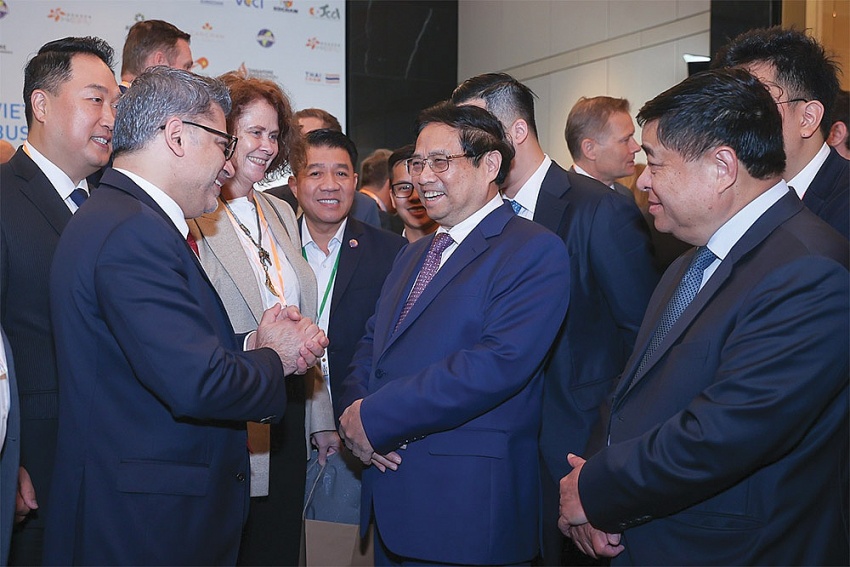 |
| Prime Minister Pham Minh Chinh met with various leaders at last week’s pivotal Vietnam Business Forum Photo: Duc Thanh |
New mechanisms
According to the Decision Lab survey, a market-based mechanism is yet to make a positive impact on foreign businesses’ ESG initiatives in Vietnam. Establishing these mechanisms, as well as improving access to green finance, current infrastructure, and the maturity of supply chain components will greatly benefit foreign businesses’ implementation of environmental initiatives, the survey noted.
There are several factors impacting environment initiatives, including awareness of employees, financial capability, infrastructure, comprehensive and transparent regulations, access to green finance, and availability of market-based mechanisms.
Slightly over one-quarter of businesses express confidence in Vietnam’s commitment to sustainable and green development. Currently, more than half indicate that current strategies support only limited to moderate objective achievements. This suggests there may be a gap between expectations and progress. Businesses prioritise financial incentives and regulatory relief when seeking government support for their ESG efforts.
At the VBF, these concerns were once again raised by foreign business associations. Muto Shiro, vice chairman of the JCCI said, “It is important to establish the necessary legal systems and implementation guidelines as soon as possible to ensure the smooth progress of power development projects. It is also important to prioritise in providing policy measures to realise large-scale renewable energy, especially large-scale offshore wind power projects, which have great potential in Vietnam.”
Joseph Uddo, chairman of the American Chamber of Commerce in Hanoi, said that a lack of predictability posed problems.
“Integrated supply chains must also be compatible with global tax policies. Vietnam should adopt global standards for accounting, audits, transfer pricing, and use the advanced pricing agreement process already approved by the National Assembly. Too many companies currently face non-transparent and unpredictable tax policies and audits, often at the city or provincial level,” he said.
What FIEs expect is booster commitments from the government. At the VBF, Prime Minister Pham Minh Chinh said that Vietnam commits to implementing guarantees, promoting breakthroughs, and implementing several enhancements to work towards green growth.
In that spirit, Minister of Information and Communications Nguyen Manh Hung also emphasised that green-digital transformation was among the most important movements of the 21st century. Green data centres and green networks are part of the ministry’s strategy and direction.
“Many laws and legal documents have been issued to complete the legal digital framework to promote digital transformation, and development of digital economy, including the Law on Telecommunications, and the amended Law on E-Transactions,” Hung said.
“The upcoming ones will be the Law on Digital Technology Industry, together with many national strategies on digital government, digital economy, digital infrastructure, digital data and semiconductor industry,” he continued.
Nguyen Sinh Nhat Tan, Deputy Minister of Industry and Trade said “The ministry has already completed development of the national power plan, and we are also building policies to encourage the development of new energy sources.”
| Lon Taranaki, country director, Vietnam Blackstone Minerals
Blackstone Minerals is an Australian company, listed on the Australian stock exchange. In Vietnam, we are progressing our vision as a future focused business that produces battery precursor products for the growing lithium-ion battery industry. This will be complemented by a large concentrator, refinery, and precursor facility, called Ta Khoa, to support integrated production in-country. A globally relevant, strategically located nickel sulphide mineral resource, the Ta Khoa project involves mining nickel sulphide deposits and processing the mined ore to produce a concentrate suitable for the downstream part of the project, the refinery. This vertically integrated mining and refining business model is being developed with environmental, social, and governance (ESG) performance integrated into our overarching Green Nickel strategy. Our strategy sits at the heart of the business and sets our course. From ambition, to goal, to strategy, Green Nickel drives our focus at each stage of development to deliver a project and a product with the highest possible ESG credentials. These include technical studies validating our low-carbon credentials, an enhanced ESG governance structure, progress on environmental and social baselines, and a commitment to sustainability. Through partnering with stakeholders that are aligned with our vision to produce green products for the EV market, we seek to lead the industry in producing low carbon products for our downstream partners. Jordan Lee, manager, Government Advisory Tony Blair Institute for Global Change
We often hear companies state that their boards and customers are demanding that they adopt more sustainable practices, indicating that taking a more environmentally friendly approach to business does create a significant competitive advantage for a company. While companies may incur addition costs to adopt these more sustainable practices, some of these initiatives (for example energy efficiency upgrades) can incur minimal cost or even save money over the long term. In addition, governments can reduce the additional financial burden that companies face to become more sustainable by introducing incentives and other mechanisms to encourage green business operations. Green finance is a very broad area, so the tools needed to access specific green finance sources differ significantly across the field. However, there are two steps that companies can take to improve their ability to access nearly all types of green finance sources. Firstly, companies can invest in improving their capabilities to measure and report sustainability information, such as energy use, greenhouse gas emissions, and waste management processes. Many green finance initiatives require companies to show improvements in various sustainability metrics, so it is important that companies be able to access this data. Secondly, it is also important that businesses communicate clearly to the government about what types of green finance tools are most important to them. For example, fiscal incentives for energy efficiency improvements are one of the most common types of green finance initiatives used globally, and consistent messaging from companies expressing interest in this kind of programme could encourage Vietnam to explore it. We engage regularly with various ministries in Vietnam, and we plan to share with the Ministry of Planning and Investment our findings regarding the development of an International Financial Centre (IFC) in Vietnam, which is likely to address several green finance and ESG topics. After engaging with the ministry, we are keen to explore how it can engage with the business community on how its stakeholders can effectively contribute to and eventually access the green finance capabilities that are planned to be part of Vietnam’s IFC. Kaushik Sriram, managing director of Performance Improvement, A&M
From our extensive experience with clients, we have observed that adopting ESG practices and circular economy models is an investment with strong positive returns. Examples exist across sectors including localisation of steel production (instead of import) through electric arc furnaces, and scrap metal input creates good quality input at competitive prices, while reducing carbon emissions in production and logistics. Another is the adoption of solar rooftop models by smaller enterprises replacing diesel generators, which has been shown to have long term positive impact on costs. We work with our clients on building ESG and EPR into core business activities to improve their opportunities to gain access to green financing. Key areas of focus in Vietnam include 4-walls energy efficiency and waste reduction, clear governance and reporting across the value chain, and management key performance indicators (leaders to plant managers) incorporating ESG-related metrics. Three opportunities for Vietnamese businesses to enhance their ability to access green finance are operational quick-win changes around energy and water efficiency, waste segregation and hazardous material treatment, internal waste reduction through yield improvement. Second is regular audits around carbon, energy, and resources. Third is reporting alignment to global ESG standards and transparent disclosures. It is important though to have a balanced return-on-investment-based approach to this, to avoid low value-adding initiatives, and high investments which might not make economic sense. However, the ecosystem for recycling and waste treatment is not well-developed in Vietnam. This will put short-term pressure on organisations as they rush to invest in capabilities and facilities to enable proper recycling waste disposal, and potentially increase costs as well as require capital investments. The recommendations to contribute to the drafting of the guidelines aimed at reducing pressure and difficulties for businesses in complying with the new regulations starting from 2025 are potentially an interim transition penalty-free period to help gradually build required capabilities and identify right outsourcing partners for such activities. Guido van Rooy, executive director Dutch Business Association Vietnam
Our members experience that implementing ESG and extended producer responsibility practices present challenges, particularly for small- and medium-sized enterprises. However, we perceive these practices as investments rather than costs. By embedding sustainability into the core business model, Dutch businesses create long-term value and resilience. Moreover, countrywide ESG compliance would enhance Vietnam’s reputation, making Vietnam more attractive in the international markets. Sustainability is no longer a choice. Vietnamese companies should start by integrating ESG principles into their core strategies, demonstrating a clear commitment to sustainability. This involves rigorous sustainability reporting and adopting international standards, which makes them more attractive to green investors. By showcasing their ESG impact, Vietnamese businesses will become more competitive and secure their stable place in the international supply chains. Green financing is crucial for sustainable growth. The recently founded Dutch investor, Invest International, is instrumental for many Dutch businesses, offering funds focused on Dutch solutions for global challenges. Their investments have been very effective, providing capital that stimulates innovation and sustainable practices. Douglas Jackson, former co-founder Boston Consulting Group Vietnam
Digitalisation is important, and for many institutions it has become an additional distribution channel with growing distribution costs. However, there is a downside as digitalisation grants the clients the ability to interact directly with their accounts. They can easily switch accounts thanks to e-verification and, as a result, customers are free to choose banks that benefit them most, leaving the previous accounts empty. Development of digital capabilities is critical, but I would say that most companies are not great at it. Some are outstanding, but the vast majority are following a trend and are not sure how to materialise value out of the investment they are making in digital. The government is increasingly gaining speed on adopting digital policies, or policies favourable to digital development, but it is still a little behind some of the other markets in jurisdiction. Singapore and Thailand have been very advanced and aggressive in developing policies in accordance with digitalisation. Companies that are at the first stage of digitalisation must identify client groups clearly, and be clear on the value proposition they are trying to convey. Rajeev Garg, general director Net Vision Vietnam
Digitalisation increases efficiency in terms of customer experience. That’s why many corporates are sparing no effort to put digitalisation in use. Not only is digitalisation customer-friendly, it is also a handy tool for businesses when it comes to payment. Payment technology like payment gateway, which is appreciated worldwide, is reducing cost of operation for many companies. Moreover, digitalisation is not only corporate-centric, there is also digitalisation in the government sector. The Vietnamese government is doing better in terms of coming up with more online services for the corporates and companies to use to make their operation more effective. Take my home country, India, for example. India is world leading in implementing digitalisation because our government is putting lots of focus on digitalisation. Most services in the Indian government’s departments are using online platforms and, as a result, citizens and companies can get their services online easily. |
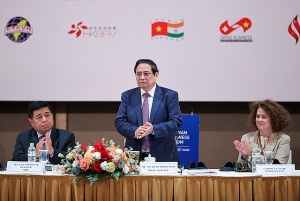 | Government and enterprises outline efforts to implement green growth strategies at VBF 2024 The Vietnam Business Forum (VBF 2024) took place this morning in Hanoi, themed "FDI enterprises pioneer in implementing green growth strategies" and chaired by Prime Minister Pham Minh Chinh. |
 | ESG in M&As: from global to Vietnam In the world of M&A, both in the global and local context, environmental, social, and governance (ESG) considerations are becoming increasingly important. |
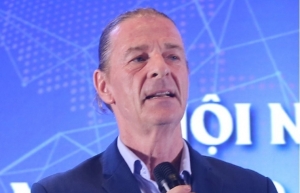 | Addressing ESG principles at the corporate level Sustainability is increasingly critical for the long-term success of Vietnamese listed companies. Dominic Scriven, chairman of Dragon Capital, spoke with VIR’s Song Huong about adopting environmental, social, and governance principles. |
 | SABECO realising ESG ambitions Business activities from Saigon Beer Alcohol Beverage Corporation, known as SABECO, are associated with and promote the implementation of environmental, social, and governance goals and related responsibilities, contributing to building a prosperous and sustainable Vietnamese community. |
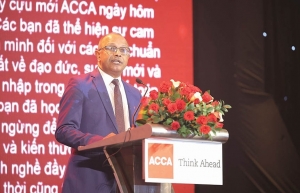 | ACCA report outlines SME agendas for ESG In 2024, the landscape for small and medium-sized enterprises is both promising and challenging. In the heart of Southeast Asia, Vietnam stands at the forefront of economic growth, and has set ambitious growth targets for 2024. |
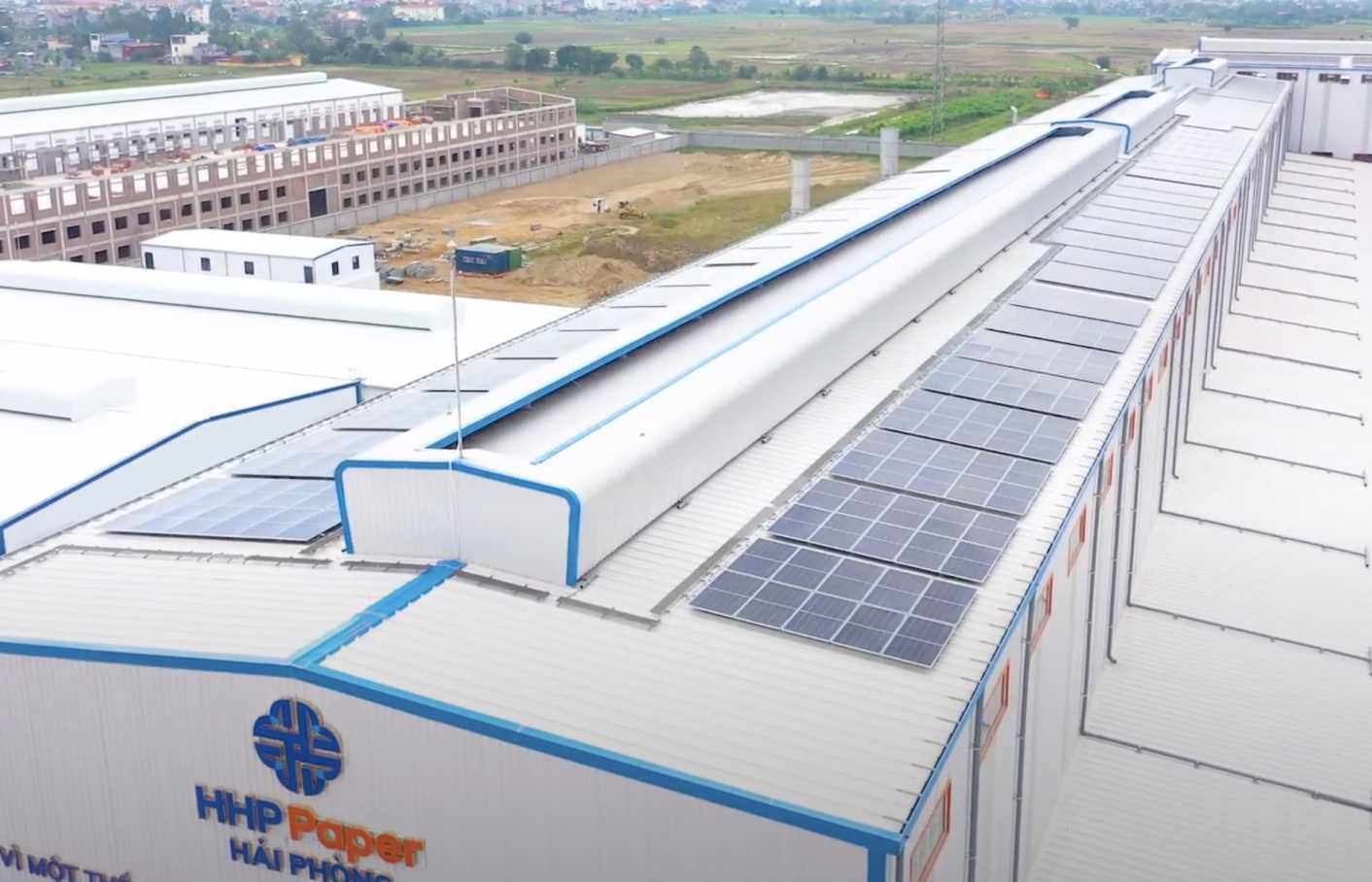 | Vietnam ESG Initiative 2024: seizing green transformation opportunities Following the success of the 2023 Vietnam Environmental, Social, and Governance (ESG) Initiative, the Agency for Enterprise Development under the Ministry of Planning and Investment and the United States Agency for International Development (USAID) are co-hosting the 2024 Vietnam ESG Initiative. |
What the stars mean:
★ Poor ★ ★ Promising ★★★ Good ★★★★ Very good ★★★★★ Exceptional
Related Contents
Latest News
More News
- Masan Consumer names new deputy CEO to drive foods and beverages growth (February 23, 2026 | 20:52)
- Myriad risks ahead, but ones Vietnam can confront (February 20, 2026 | 15:02)
- Vietnam making the leap into AI and semiconductors (February 20, 2026 | 09:37)
- Funding must be activated for semiconductor success (February 20, 2026 | 09:20)
- Resilience as new benchmark for smarter infrastructure (February 19, 2026 | 20:35)
- A golden time to shine within ASEAN (February 19, 2026 | 20:22)
- Vietnam’s pivotal year for advancing sustainability (February 19, 2026 | 08:44)
- Strengthening the core role of industry and trade (February 19, 2026 | 08:35)
- Future orientations for healthcare improvements (February 19, 2026 | 08:29)
- Infrastructure orientations suitable for a new chapter (February 19, 2026 | 08:15)

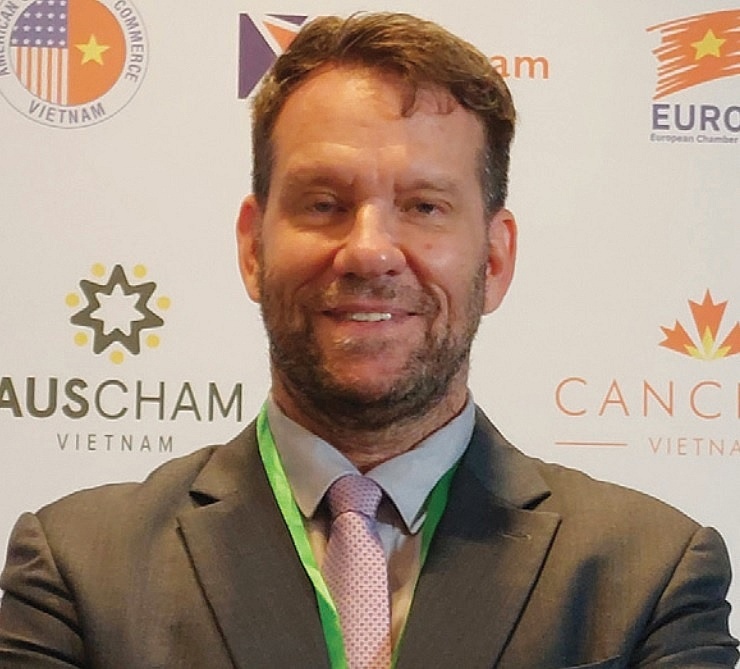


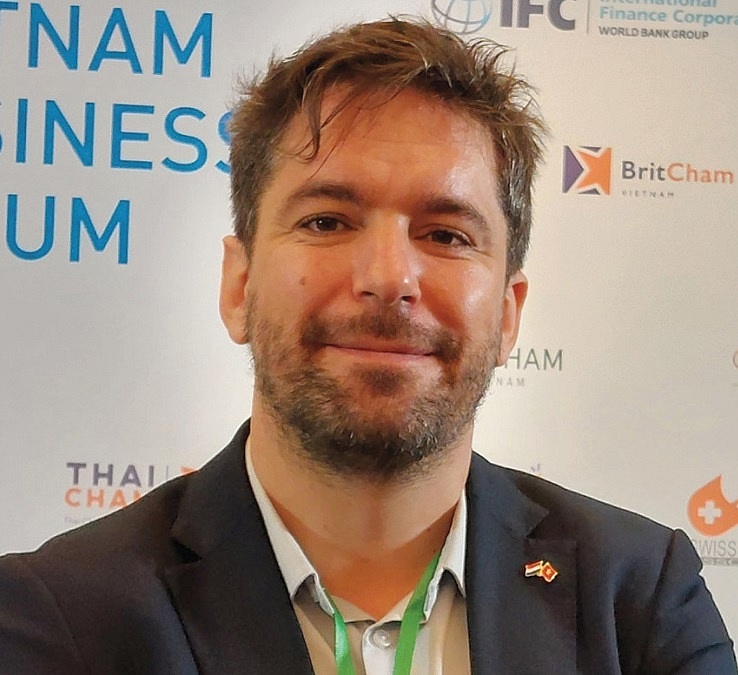
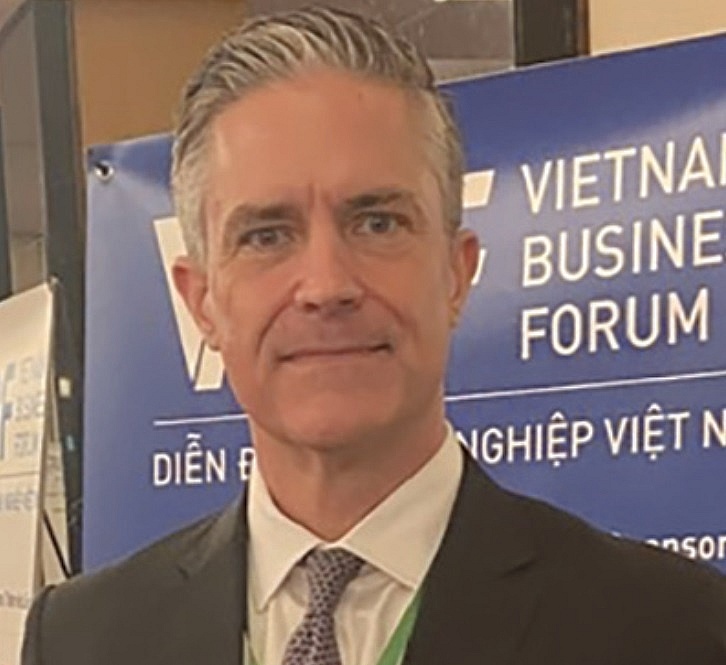
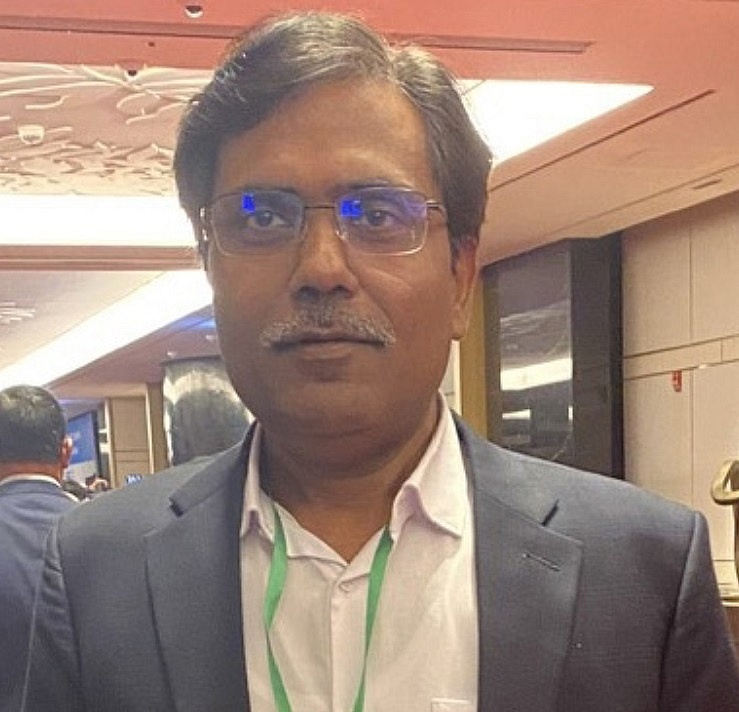
 Tag:
Tag:



















 Mobile Version
Mobile Version